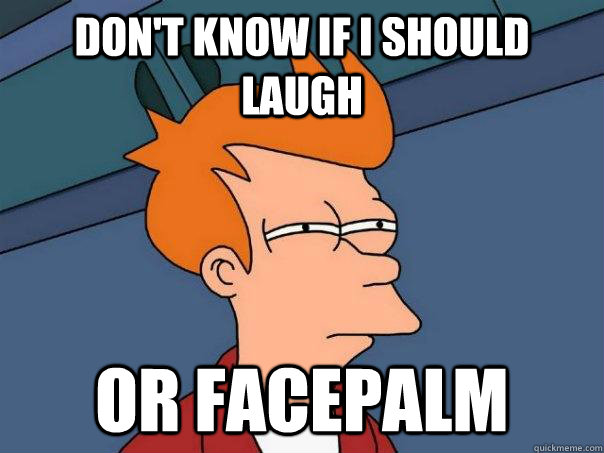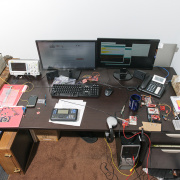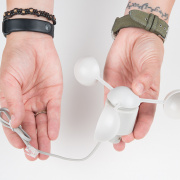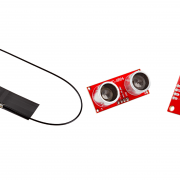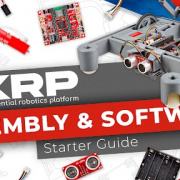The Case for Patents
One open source guy's opinion on whether or not we should have these things at all
Patents get a bad rap here in open source land. And in my opinion, as many others, rightfully so. Nothing stifles innovation like some big company squatting on their IP to better control the market and extract as much money from it as possible, advancement of the species be damned. But maybe I’m getting ahead of myself. Maybe there’s some kind of justification for the patent system…? Well, get out your tinfoil hats, kids, cuz we’re going to dig into this!
First, let’s normalize our data set. The patent system goes back to 1790, the first incarnation allowing for 14 years of “I own this and you don’t” from the time of issuance. In 1836 it became 21 years, in 1861 it became 17 years, and in 1994 it became 20 years from first filing (although, design patents are 15 years). But you don’t just get to keep the patent for that long. You’ve also got [maintenance fees](https://www.uspto.gov/learning-and-resources/fees-and-payment/uspto-fee-schedule#Patent Maintenance Fee) to pay every few years (again, except for design patents). We’ll get back to the maintenance fees in a bit. But getting a patent in the first place can take upwards of $30,000 and three years.
At this point I’ll let you in on a little secret: I’m not totally against patents. Not in principle, anyway. I mean, if an entity is going to go the trouble of creating something that takes a substantial amount of time and money to pull off, then they ought to be able to recoup their investment and a little extra green to make it worth their while. This is, of course, assuming that the product in question doesn’t suck and they actually can make their money back. But I get it, and I support it. But 20 years?? It seems gratuitous to me after five. Maybe even after one. If I were king of the patent office, you’d get one year. If you can’t get your investment back after one year, your product probably sucks and you should have tried harder.
So that’s my first big beef with the MAN and his patent system: 20 years is 19 too long. You’re effectively holding the general population hostage and crippling our technological advancement intentionally to let big companies extract the most money possible out of us (I did tell you to get out your tinfoil hat for this). Definitely uncool.
I pick one year somewhat (meaning completely) arbitrarily, but my number is definitely not zero. Why? Because if a company doesn’t stand to turn an obvious profit, they’re not going to bother in the first place, and we consumers would be worse off for it. The number one goal of a company is to turn a profit, and the primary levers to do so are 1) maximize retail price and 2) minimize cost. (And there are lots of peripheral means - customer service and such - but those are the big two, IMO.) Maybe a privately-held company could demonstrate something like altruism, but certainly a publicly-held company will only operate in its own interests. No? Look at pharmaceuticals: It’s more lucrative for them to pay off opioid death settlements than it is to stop making the drug and save lives. Look at Volkswagen: they made more money by lying about their emissions to keep their vehicles performing well (as in fun to drive) while polluting the environment than they would by actually reducing emissions and making the cars slower. But they got caught. D’oh!
My point is that public companies don’t work for your benefit, they work for their own. As such, it’s all about the bottom line and how to make it grow. And a 20-year patent term only works to their benefit, not yours. But we still want them to be making things, so throw them a bone. OK, you can have three years. Then shut up and get back to work. Stop employing lawyers to make you more money. We want to incentivize the monsters to keep making good, original and innovative products, but it can’t be a hinderance to the rest of the world.
Now let’s talk about the “maintenance fees.” Beyond paying for the general services of the patent office, it is speculated that these fees will somehow spur innovation, presumably because the fees increase proportionally with the length of time the patent is held. But did you check that link to the fee schedule? Only in rare cases do they exceed $10,000. So, lemme get this straight: Google submits thousands of patents every year, and you’re going to force them to let a patent lapse and innovate over a $10,000 maintenance fee? Or a pharmaceutical company? No, you’re really not.
Now cinch down your tinfoil hats for a sec. Why do those fees seem so proportionally low? Because the same companies that have to pay them lobby (ok, bribe) to keep them that way. More than that, with the number of patents they have to service, the patent office is still bringing in a hefty sum of cash - around three billion dollars in 2016. Sounds like a little quid pro quo, don’t you think? The government is still getting their cut through the patent office, and anyone that might be in a position to do something about it is getting their cut through lobbying efforts (yeah, bribes). Foxes guarding the henhouse.
Back home at SFE, we don’t do patents. We don’t keep any IP. We hardly keep any secrets. Running a company in this environment is hard. Competition is ever-present and always pushing us to do our best because it’s the only way to differentiate ourselves. But the pursuit is less about the bottom line and more about moving us forward as a species. The more that’s commonly known, the less likely that we somehow slip back into the dark ages.
That said, we absolutely do need some amount of protection. A company that’s willing to go out on a limb to make something that requires relatively greater amounts of time and money should be able to make back their investment and more to insure their own growth. But 20 years is a big chunk of a lifetime, and technology moves fast. It’ll move much faster if we actually let it.

